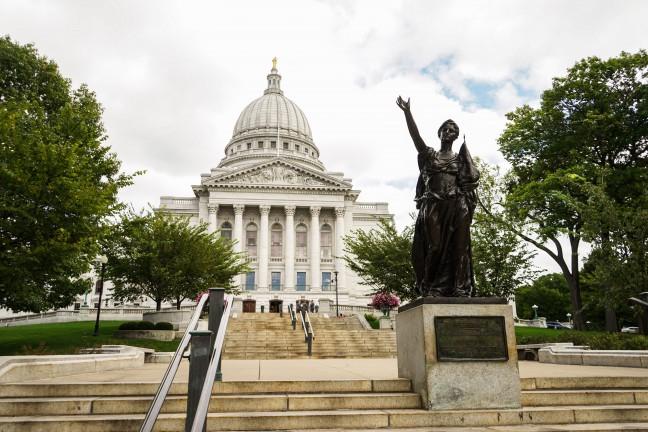Maintaining a working knowledge of how local government functions is crucial. It should be a priority of all citizens to understand the basic functions of government officials, so as to provide context as to why their locale functions the way it does.
Unfortunately, this ideal remains far-fetched. But why? Shouldn’t citizens emphasize educating themselves on the roles of those who influence so much of their lives?
The reality of the matter is that on an individual level, our lives revolve around much more than local politics. We feel our daily load is too hefty to allow time to properly consume the ramifications of local governance. On the contrary, accessing such information is easier than ever, with candidate websites designed to be as user-friendly as possible, and search engines capable of supplying any answer you’re looking for. But the problem persists.
According to a survey conducted by the American Council of Trustees and Alumni – a non-profit dedicated to the support of a liberal arts education and the free exchange of ideas – the issue of civic education runs deep. Per the study, nearly half of college graduates surveyed could not identify the difference in term lengths for senators vs. state representatives. What’s more, less than half of college graduates were able to correctly identify that presidential impeachments were tried in front of the U.S. Senate.
UW looks to encourage civic duty through Big Ten voting challenge
Clearly, prioritizing knowledge of government processes is far from the top of most people’s lists. Without a working knowledge on the role of a senator or the time they’re required to serve, how can someone confidently cast their vote in one candidate’s favor over another?
This sort of blind voting is a major part of the challenges America is facing today. Either a candidate has been elected by voters without enough information, or by a small fraction of voices that dominate an area on the local level, but are overshadowed nationally.
Zoltan L. Hajnal, a professor of political science at the University of California, San Diego, is a firm believer that voter turnout has the biggest implications on a local level. He cites the theory corroborated by numerous political scientists that increasing or decreasing voter turnout nationally will do little to affect who wins outright. Rather, Hajnal asserts that poor local commitment to elections both skews representational data in voters, and creates a minority voice ripple effect as a result of that candidate’s election.
“My research has examined the effects of turnout in local contests. In America’s Uneven Democracy I focused specifically on the impact of turnout on the representation of racial and ethnic minorities. The book shows that who wins and who loses in local democracy is shaped in no small part by who votes,” Hajnal said.
Big Ten Voting Challenge aims to increase voting participation among students
This issue can be rectified simplistically – people need to take ownership of their citizenship and research which candidates align with their views, and the roles that candidates hold in the government system. In order to combat societal patterns of inequality and injustice, taking the initiative to learn about how government agencies impact different sectors of our lives is a crucial first step.
Voter turnout in Madison during the 2015 mayoral race was absurdly low, yielding only 13-percent voter turnout for the primary, and 29.6 percent for the general election. How can a community hope to see systemic change if over two-thirds of its eligible voters won’t show up on election day?
On a campus level, the spring 2017 ASM election yielded a measly nine percent voter turnout. In order for more perspectives to be heard, more voices must speak up with their ballot.
In essence, taking the initiative to become sufficiently knowledgeable about the faces who play such central roles in fighting for your interests should be embraced and widely practiced, rather than disregarded at alarmingly high levels.
Lucas Johnson ([email protected]) is a sophomore majoring in journalism.














